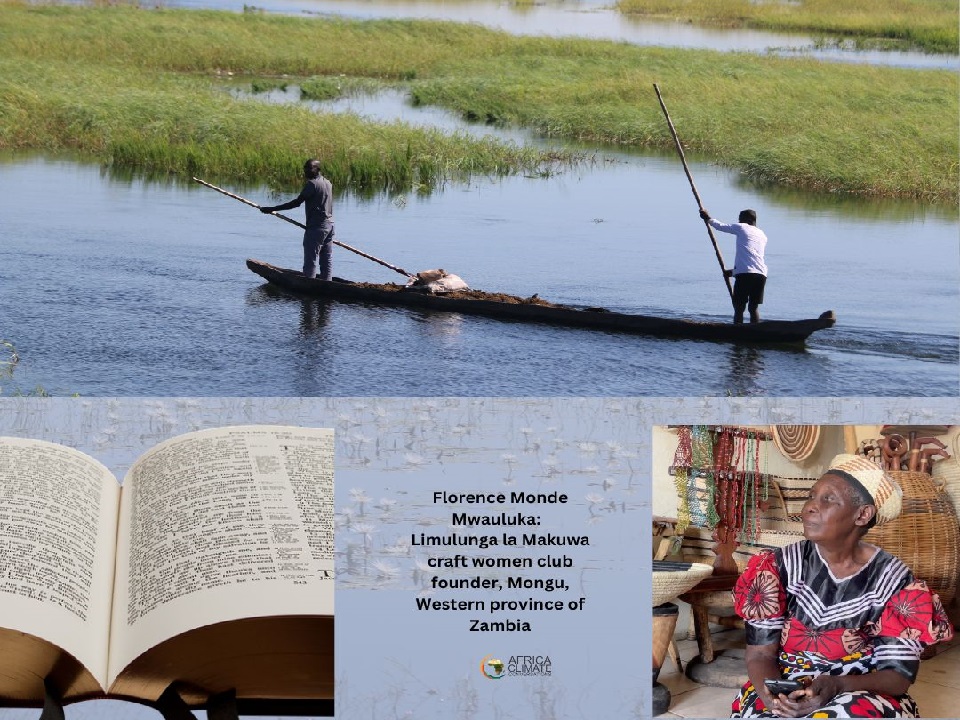
“After colonialism, religion depicted that we “Africans” lived in a satanic manner,” argues Florence Monde Mwauluka the Limulunga la Makuwa craft women’s club founder. Mwauluka, is a woman of 85 years old from Mongu district of Zambia’s Western Province.
How is Mwauluka and other women conserving and benefiting from the floodplain?
In today’s episode, Mwaluka recalls her childhood before colonialism and the introduction of Christianity to her Lozi people, who have resided in the Barotse floodplains for over four centuries. The Lozi used water andherbsfrom their natural environment for medicinal purposes. The community cleared canals that connected their respective homesteads. The areas adjacent to the canals were also used for agriculture. “They did so because they believed it was their duty to the environment, as well as to maintain peace with their neighbours and ward off pests and diseases,” Mwaluka explains.
How important is the Baroste floodplain, what are its threats and solutions to conserving it?
The Barotse floodplains have deteriorated, according to her, because the community was discouraged from conserving their environment without monetary compensation following Zambia’s independence. In what other ways have religion, colonialism, and modern education influenced the conservation of the Barotse floodplains?
